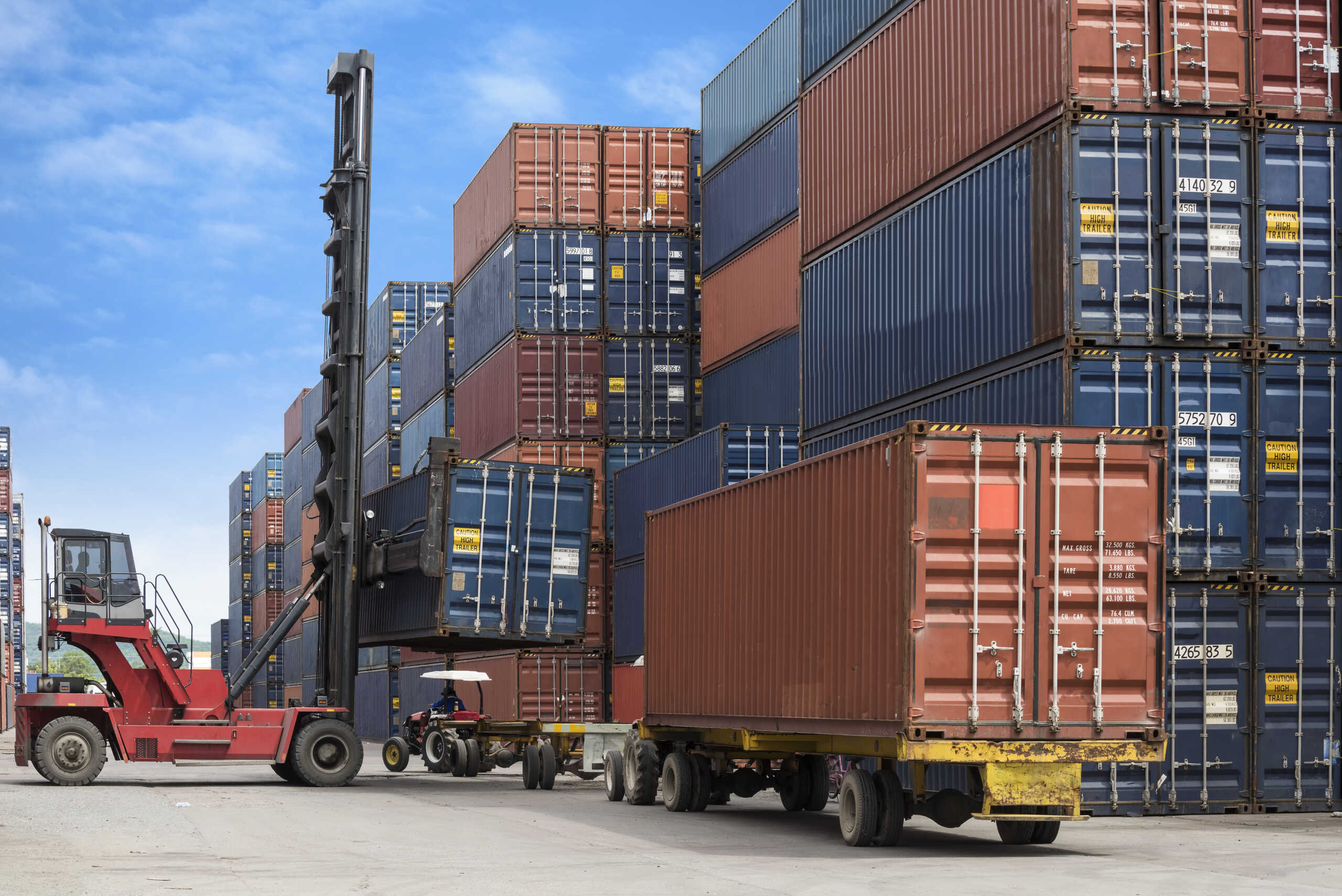Blog

Greater Port Terminal Efficiency Can Improve Cleveland Trucking Delivery Times
Supply chains have been unquestionably disrupted by the novel coronavirus, but issues with U.S. port terminal efficiency didn’t start there. The crisis merely cast these problems into stark relief. One silver lining in all this is that some port terminal operators are seizing this opportunity to streamline their operations with digital and self-service options to improve transparency and visibility. More efficiency at maritime ports would only serve to improve Cleveland trucking delivery times, allowing us to provide increasingly faster service.
It’s not likely to happen overnight, though.
Last month, the CEO of the Association of American Port Authorities testified before the U.S. House Transportation and Infrastructure Committee and revealed that significantly reduced freight volumes are unlikely to bounce back before the end of 2020. The year-over-year volume drops in March were estimated to be about 18 percent and in April and May between 20 to 25 percent.
On the one hand, this could cause some ports to halt any planned investment in capital improvement projects – including digitization. On the other hand, stronger competition may provide greater incentive to address some of the longstanding issues that have led to bottlenecks and other headaches at some ports for years.
Cleveland Trucking Companies Rely on Port Terminal Partners
Port terminals are responsible for managing the incoming and outgoing movement of interstate and international goods to help keep global commerce moving. A port’s level of efficiency has an inevitable snowball effect on local deliveries, including those of our Cleveland trucking professionals. Bottlenecks at the ports – often caused by inaccurate information about when ships are arriving, how long they will take to unload, etc. – can result in significant delays.
Our Cleveland trucking team works with more than a dozen local port terminals from New York to Los Angeles to ensure our customers’ shipments arrive intact, on time, every time. Our services include CFS (commercial freight services), intermodal transportation, devanning, transloading, unloading, warehousing and distribution.
We prepare for all kinds of supply chain disturbances. Port terminal delays are just one of them. The pandemic-related supply chain disruptions simply laid bare for some terminal operators that improvements are more than merely a good idea; they are in fact an imperative to survival. We’re committed to contributing however we can to help make those transitions as smooth as possible for our partners.
Strategies for Greater Efficiency, Faster Deliveries
Much of it comes down to transparency. As one whitepaper published by the The Journal of Commerce on port productivity concluded, “The marine terminal needs timely and accurate information from the carrier about the container stowage on its vessel at least 24 hours before the arrival of the vessel, and it needs the ship to show up on time. The shipping line, which has built its schedule around the terminal’s promised productivity, needs its vessels to be turned around as quickly as possible to maintain its schedules, maximize slow-steaming and have its vessel assets deployed most effectively.” In short, that means everyone needs to be communicating. Where unexpected delays crop up, there needs to be immediate transparency to make adjustments.
With this in mind, many are recommending a greater push toward digital solutions.
As reporting by Martime Executive Magazine recently underscored, terminals have historically been slow to adopt smart industry technologies, even though they’re needed to keep up with a world that is increasingly connected and digital. In fact, some terminal operators are still receiving vessel location information by word-of-mouth captains’ predictions (which can be about 13 hours off, on average). The pandemic-related panic-buying and export bans exponentially amplified this problem. As a result, more port operators are exploring investing in automated systems. This would allow for self-service quoting (which could help eliminate numerous errors) as well as digital billing, shipping instructions, hazmat declarations, customs and insurance forms and more. Cranes and terminal tractor systems can be automated as well.
Collectively, such measures could improve visibility, transparency and communication, giving all invested parties – including Cleveland trucking companies – more opportunities to connect and track goods and make last-minute adjustments if necessary. That in turn gets your goods to you faster.
If you have questions about our Cleveland trucking services, contact On Time Delivery & Warehouse by calling (440) 826-4630 or send us an email.
Additional Resources:
Ports see ‘longer battle’ ahead before volumes turn corner, May 29, 2020, By John Gallagher, Freight Waves
Key Findings on Terminal Productivity Across Ports, Countries and Regions, The JOC Group
More Blog Entries:
Our Cleveland Trucking Company Navigates Pandemic-Driven Complexity, May 31, 2020, Cleveland Trucking Company Blog
- Categorized: Company News
- Tagged: Cleveland port terminals, Cleveland supply chain, Cleveland trucking

Comments are closed.